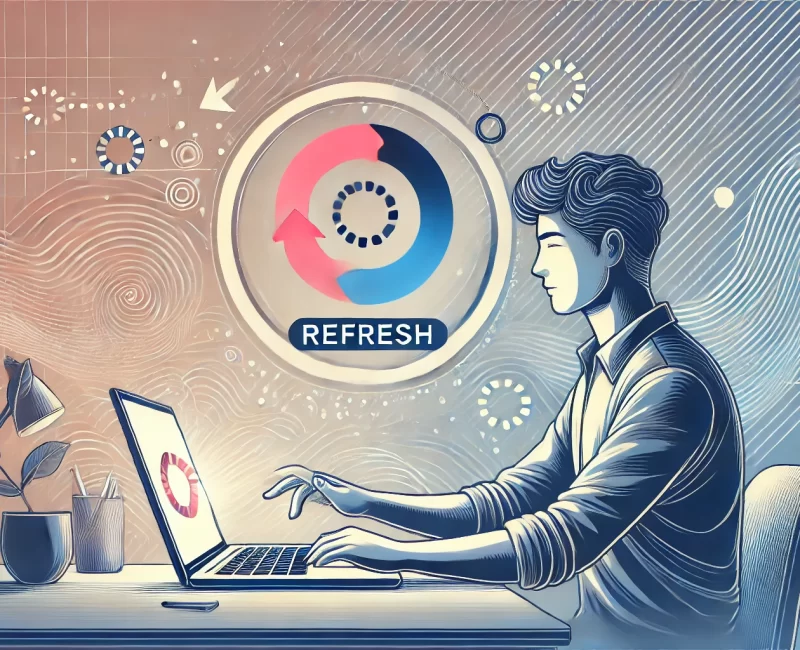
In today’s hyper-competitive digital market, businesses compete to acquire and hold the attention of their target audiences. With the rapid evolution of customer behaviour fuelled by technology, a traditional marketing approach is no longer adequate. Enter full-funnel optimisation, a complete strategy coordinating marketing efforts across the consumer journey, from awareness to conversion and loyalty.
The article explores the value of full-funnel optimisation and how it may help organisations achieve sustainable growth.
Understanding the Full Funnel
The marketing funnel is a model that illustrates the journey a consumer goes through before making a purchase. It is typically divided into three key stages: top, middle, and bottom. Each stage represents a different set of objectives and requires tailored strategies to effectively engage potential customers.
Top of the Funnel (Awareness)
The top of the funnel (TOFU) is where potential customers first encounter your brand. The primary goal at this stage is to raise awareness and generate interest. This can be achieved through various channels such as social media, content marketing, search engine optimisation (SEO), and paid advertising. By providing valuable content that addresses pain points or interests, businesses can attract a wider audience.
Middle of the Funnel (Consideration)
Once awareness is established, the focus shifts to the middle of the funnel (MOFU), where potential customers begin to evaluate different options. This stage is crucial for nurturing leads and building relationships. Businesses can employ email marketing, webinars, and informative content to engage prospects, offering them insights that help in their decision-making process.
Bottom of the Funnel (Conversion)
The bottom of the funnel (BOFU) is where conversion occurs. At this stage, potential customers are ready to make a purchase decision. Effective strategies here include targeted promotions, testimonials, and clear calls to action that facilitate the buying process. Addressing any lingering objections and providing reassurance is essential to encouraging final conversion.
The Importance of Optimisation
Optimisation is the key to ensuring that each stage of the funnel is effective and efficient. By continuously analysing and refining marketing strategies, businesses can improve performance and increase conversion rates. Here are several reasons why full-funnel optimisation is vital:
Enhanced Customer Experience
A well-optimised funnel creates a seamless experience for customers. By understanding their needs and behaviours at each stage, businesses can provide relevant content and offers that resonate with their audience. This personalised approach not only enhances the customer experience but also fosters loyalty and repeat business.
Data-Driven Decision Making
Full-funnel optimisation relies on data analysis to inform marketing strategies. By tracking metrics such as engagement rates, conversion rates, and customer feedback, businesses can identify areas for improvement. This data-driven approach allows for informed decision-making, ensuring that resources are allocated effectively for maximum impact.
Increased ROI
Optimising the entire funnel can lead to a significant increase in return on investment (ROI). By addressing each stage of the customer journey, businesses can reduce wastage in their marketing budgets and focus on strategies that yield the highest returns. This holistic approach ensures that every marketing pound spent contributes to overall growth.
Implementing Full-Funnel Optimisation
To successfully implement full-funnel optimisation, businesses must consider several key strategies:
Align Marketing and Sales Teams
Collaboration between marketing and sales teams is essential for full-funnel optimisation. Both teams should work together to define target audiences, share insights, and create cohesive strategies that guide prospects through the funnel.
Create Tailored Content
Content should be tailored to address the specific needs of potential customers at each funnel stage. For example, informative blog posts and social media content can attract awareness, while case studies and product demos can facilitate consideration and conversion.
Leverage Technology
Utilising marketing automation tools can streamline the optimisation process. These tools can help track customer interactions, segment audiences, and deliver personalised content at the right time, enhancing the overall efficiency of the funnel.
Continuously Test and Refine
Optimisation is an ongoing process. Regularly testing different strategies, content formats, and messaging can provide valuable insights into what resonates with your audience. A/B testing, for instance, can help determine the most effective calls-to-action or landing page designs.
Case Studies: Success Stories in Full-Funnel Optimisation
Numerous companies have successfully implemented full-funnel optimisation to drive growth. Here are a couple of notable examples:
Case Study 1: HubSpot
HubSpot, a leading inbound marketing platform, has effectively used full-funnel optimisation to boost its lead generation and conversion rates. By creating targeted content for each stage of the funnel and employing marketing automation to nurture leads, it has significantly increased its customer base and revenue.
Case Study 2: Shopify
Shopify, an e-commerce platform, has also embraced full-funnel optimisation. By focusing on user experience and providing valuable resources for potential and existing customers, they have maintained a high conversion rate and fostered customer loyalty, leading to sustained growth.
Conclusion
In a world where consumer expectations continually evolve, full-funnel optimisation presents a powerful opportunity for businesses to unlock growth.
By understanding the customer journey and implementing tailored strategies at each stage, organisations can enhance the customer experience, make data-driven decisions, and ultimately drive higher ROI.
As competition intensifies, those who embrace a full-funnel approach will be better positioned to thrive in the digital marketplace.









